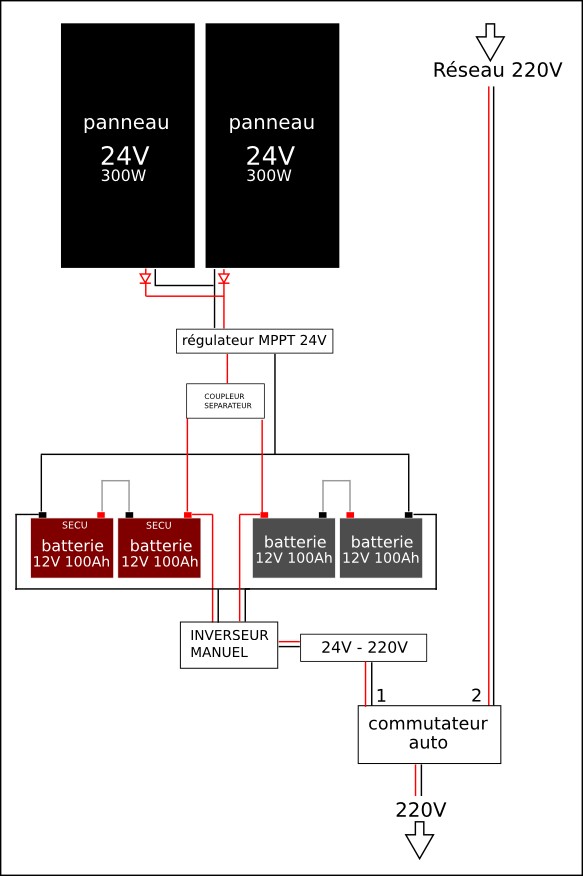I am currently building a small photovoltaic installation. I did some research on it, and on how to wire the different elements but I only have very limited notions of electricity, and I do not know if the diagram I thought hold the road or not ... Thank you very much for your opinions.
Here is the situation
I live in an area where there are regular power outages, which can sometimes last.
As I do not have the immediate means to buy enough panels and batteries to cover all of my consumption, the idea at first is at least to have a minimum of current during cuts , even if they occur at night or on days without sun, and therefore to have permanently charged batteries just in case.
However story of not using my solar installation THAT during cuts, I would like to be able to use it the rest of the time, while keeping the safety batteries full.
(In the future the idea is to increase the number of panels / batteries to be completely autonomous)
So I thought of this scheme:

The idea is to charge 2 sets of batteries, one for everyday use, the other for safety.
The current batteries are connected via a 220V converter to an automatic switch: When there is a battery, it is used, when there is no longer the switch switch on the 220V network.
In the event of a power cut, and if the main batteries are empty, the switch (in red, above "24V - 220V") is manually switched to use the safety batteries.
Is my scheme right and can it work like this?
Thank you for your help!
Olivier


